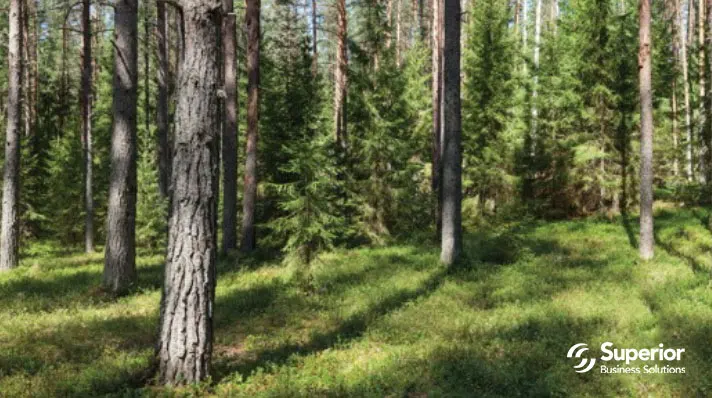Popular Science Got It Wrong on Paper. Here are the Down-to-Earth Facts on Sustainable Paper
Spoiler alert: no, paper is not bad for the planet. And we’re proud to use this forum to tell you the real story. But first, let’s start with another little story.
Twelve million cars are “junked” in the U.S. every year. Must be only a matter of time till we’ll have no cars on the road, right? Of course not. They make plenty of new ones.
But this is pretty much the logic used by Popular Science recently in a deceptive article calling paper an “environmental disaster” and perpetuating myths and misdirection about the forests from which U.S. and Canadian paper products come.
A Popular OPINION Maybe…but It’s Not Science
The Popular Science article itself was the real disaster, filled with misleading claims about the sustainability of paper products. Thank goodness our friends at Two Sides North America noticed, and responded to Popular Science with real science in a fact-filled article setting the record straight.
Kathi Rowzie, the new president of Two Sides North America, wrote the response and framed it as a letter to the editors of Popular Science. In it, she made short work of the original article’s false implications. Here are two examples:
- False Claim: The Popular Science hatchet job uses stereotypical references to the loss of “old growth” forests along the Amazon River. Of course, it did not point out that paper products in the U.S. and Canada come from sustainably managed North American forests.
Fact: These forests are far from disappearing, and have actually grown by about 18 million acres in the last 30 years.
- False Claim: The Popular Science article claims that manufacturing and using paper destroys forests.
Fact: The demand for sustainably sourced paper and paper packaging creates a powerful financial incentive for landowners to manage land responsibly and keep it forested, rather than converting it to non-forest use.
“After all, paper is not only the most recycled material in North America. It is a material whose industry grows and regrows its own feedstock (wood fiber), derives most of the power to drive its processes from carbon neutral biofuel, and recycles more than 95% of the chemicals it uses to turn trees into pulp. This is not “wildly unsustainable.” This is a description of some of the world’s most sustainable products.” – Kathi Rowzie, President, Two Sides North America
In Eco-friendly Solutions, Paper is a Tiger
The article from Two Sides goes on to hold many other claims up to the light. It exposes them for what they are: old, inaccurate fables that are an easy sell to those unable or unwilling to look deeper.
In terms of recyclability and the use of environmental practices in its processing, the paper industry provides leadership and a beacon for many other industries to follow. A lazily researched article full of misinformation doesn’t change the facts. Popular Science ought to be ashamed of itself.
You’ve Got a “Green Light” to Start Now
At Superior, we offer many eco-friendly printing options. On Thursday, we’ll be celebrating Earth Day by sharing many more ways you can green your print supply chain.
We’re “leaning in” to Earth Day. That might surprise you if you believe the worn and weary misperceptions about paper. But once you know the facts, you know why we are proud of our company and our industry in making paper one of the most sustainable products on that earth we celebrate this week.
A Superior Partner
Our eco-friendly focus is only one reason to partner with Superior. Some of the other benefits you enjoy make our competitors green – but in an entirely different way.
Our fifth consecutive Best of Print and Digital award demonstrates the faith and appreciation our customers show for us in their evaluations.
And few other companies in the industry boast our ISO certification. It’s not easy to maintain. But we do, because to us, “easy” is not important. “Dependable” is.
Contact your five-time award-winning Superior sales rep or contact Superior directly, and ask for help greening your print supply chain. We’ve got blending sustainability and profitability down to a science. And we’ve found that to be very, uh…popular.


